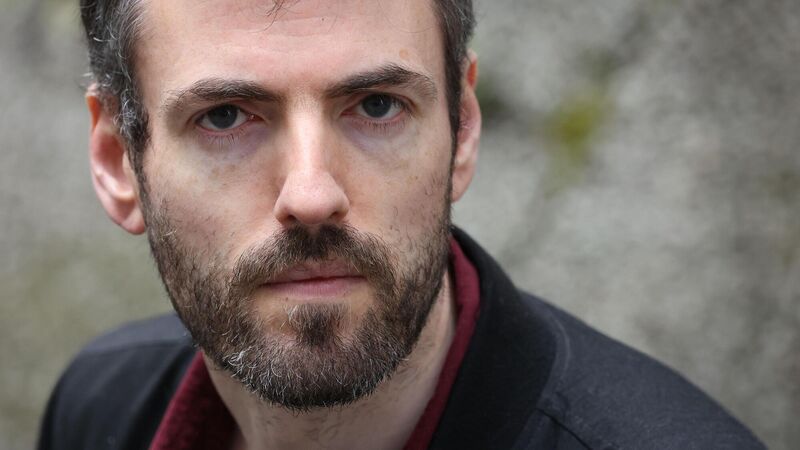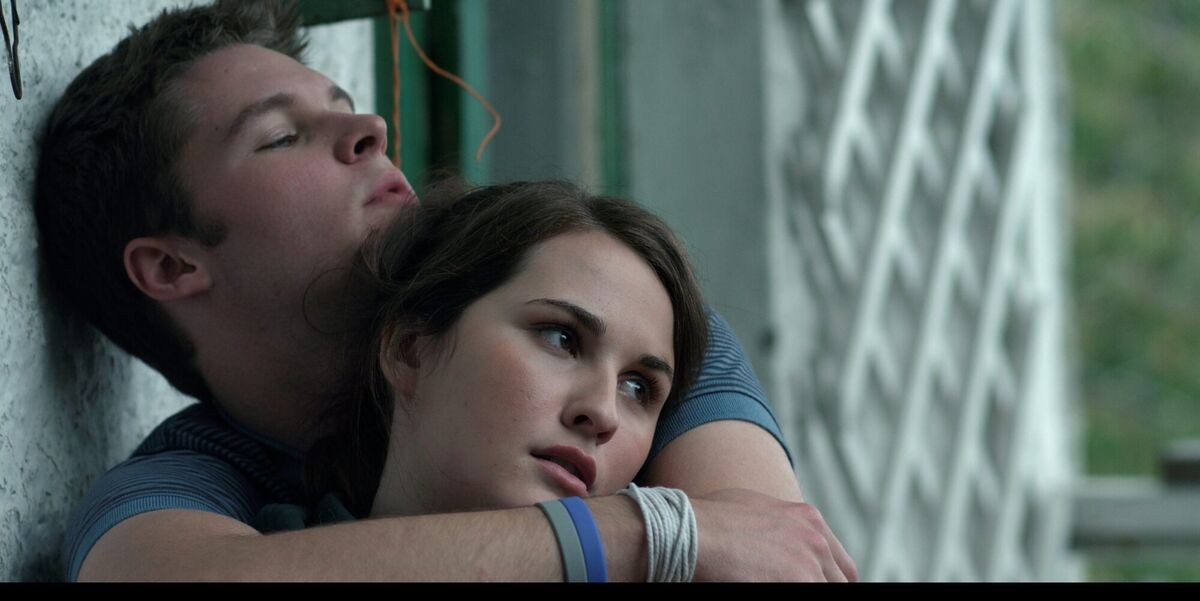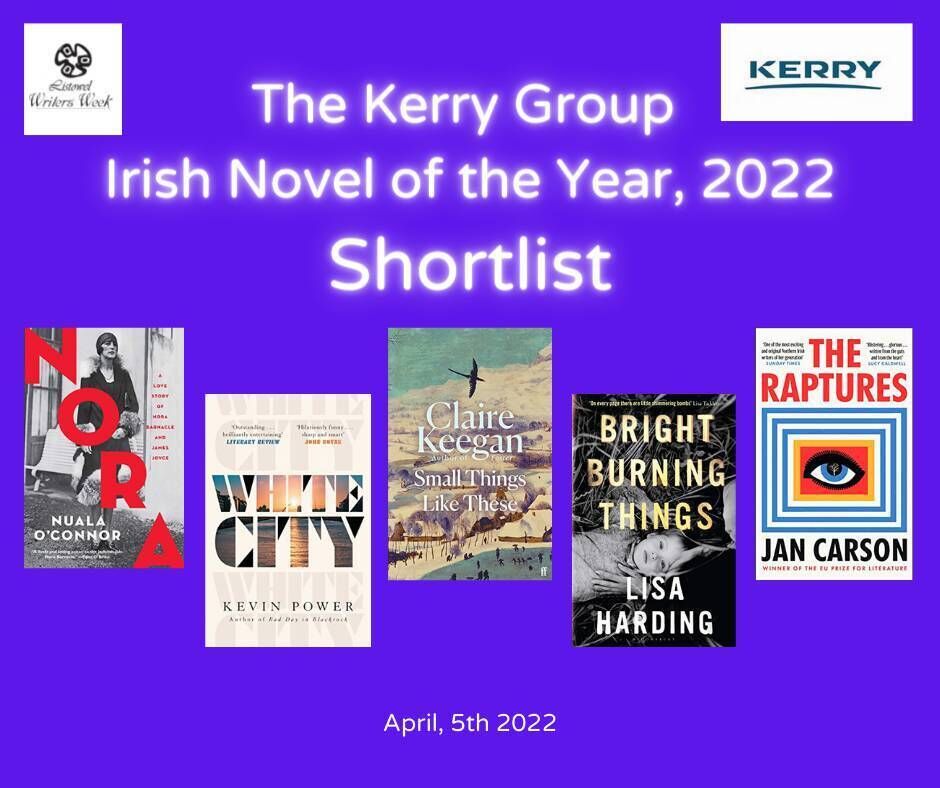Kevin Power: 'We have a culture where niceness is valued over honesty'

Kevin Power is one of the guests at Listowel Writers' Week. Picture: Nick Bradshaw
When Kevin Power came across Virginia Woolf’s advice to a young poet — ‘For heaven’s sake, publish nothing before you are thirty’ — he had already released his debut novel Bad Day in Blackrock to widespread acclaim, at the tender age of 27.
However, as the Dublin author struggled to follow up on its success, Woolf’s salutary words resonated. Winning a Rooney Prize and having his book adapted for the screen by Lenny Abrahamson [What Richard Did] did not bestow any special powers when it came to sitting down and writing another one.
With the deadline long passed, his confidence collapsed and he ended up on medication for anxiety and depression, working in a call centre to pay the bills. He recounts his experience with admirable honesty in The Lost Decade, the opening essay in his recently released collection of essays and criticism, The Written World.
It is an authenticity that also shines through in his criticism and book reviews, which he “astonishingly” kept on writing even as he failed to deliver a manuscript. Many feature in The Written World, which covers everything from Oscar Wilde’s influence on Martin Amis to the genius of Clive James.
In the age of the internet, when everyone with a smartphone can broadcast their opinion in a never-ending number of fora, Power argues for the continuing importance of the professional critic.
“We seem to have much more criticism but what we really have is more reviewing or rating of works of art," says Power. "If you want to distinguish criticism from what are basically consumer reports or the positive/negative grading of works of art, the difference is ideas. A critic is someone who is going to at least have an idea about the work of art they are reviewing."
Power is reluctant to issue a sweeping condemnation of sites such as Goodreads, but baulks at some of the online reviewers' claims, such as "the characters in this book swear too much" or "I found it offensive".
"That is such a bizarre judgment to me that makes no sense. That is not criticism, that is a poorly thought-through set of moral values. That is why it is worth having professional critics. They are able to articulate clear values about what makes a work of art good, bad, middling or even just interesting.”

Power says that being honest in his reviews has not always won him friends.
“We have a culture where niceness is valued over honesty, sometimes rightly. But art is more important than any one individual’s feelings. I’ve given writers bad reviews for good reasons. I stand by those reviews — I thought the books were bad and I said so. But you pay a social price."
Power recalls reviewing a prominent Irish novelist, and eventually getting the word back that the author felt he had taken a step too far. "At the time, I thought, okay, well maybe they’re right but I very quickly came to feel, no, bloody hell, what use is a critic who doesn’t say what they think? I have tried to tread a middle path — by not being gratuitously horrible about a novel I don’t like but also saying if I think it doesn’t work in certain ways.”
Essay-writing, which enjoys a dedicated following in the US especially, has never captured the imagination of Irish writers, or readers, in the same way as fiction. Why does Power think this is?
“Essays are one of the ways in which we think about the world. If you are of a literary caste of mind, if you like to read a lot of fiction, then you eventually want to think about fiction. Essays tend not to provide narrative satisfactions in the same way."
Power compares essays to a really good argument. "It is not always people want. People don’t necessarily want to be confronted with an argument — a bit like going into the pub and having someone come up and say ‘hey, what do you think of this controversial issue?’. You don’t always want that, sometimes you just want good company.”
Power’s ‘lost decade’ ultimately served him well as a writer, and he eventually delivered that second novel, White City, the post-Celtic Tiger story of the privileged waster son of a banker. Published last year, as he turned 40, it has been shortlisted for the Kerry Group Irish Novel of the Year, to be announced at Listowel Writer’s Week next week, and the Dalkey Novel of the Year. Life also moved on.
“I have two small kids so I have no time to be lost — that is one small solution to that problem,” he laughs. He welcomes the award nods but is understandably cautious, given his previous experience. “When you write a book, you are writing into a community of readers and writers and to get an award nomination is a message back from that community to say ‘we like what you are doing, we recognise what you are doing’ and that is why they are wonderful."
The Written World by Kevin Power, published by Lilliput Press, is out now. His novel, White City, has been nominated for the Kerry Group Irish Novel of the Year at Listowel Writers' Week, June 1-5

Listowel Writers’ Week runs from June 1-5. Kevin Power will be appearing with other Kerry Group Irish Novel of the Year shortlisted authors Rachel Joyce, Claire Keegan, Nuala O’Connor, and Lisa Harding at the Meet the Shortlist event on Thursday, June 2 at 12 noon at the Listowel Arms Hotel.
Other highlights:
- A Working Class Writer is Something to Be, with authors Paul McVeigh and Kit de Waal, 1.30pm, Listowel Arms Hotel.
- Louise Kennedy, author of The End of the World is a Cul de Sac and Trespasses, in conversation with Niall McMonagle, 3pm, Listowel Arms Hotel.
- Claire Keegan, author of Small Things Like These, in conversation with Rick O’Shea, 12 noon, Listowel Arms Hotel.
- Michael Hartnett event with poet Thomas McCarthy, 3pm, St John’s Theatre.
- Eavan Boland Event featuring Olivia O’Leary in conversation with Victoria Kennefick, Liz Quirke and Gail McConnell, 5pm, Listowel Arms Hotel.
- Jeanine Cummins, author of American Dirt, in conversation with Rick O’Shea, 8.30pm, Listowel Arms Hotel.


